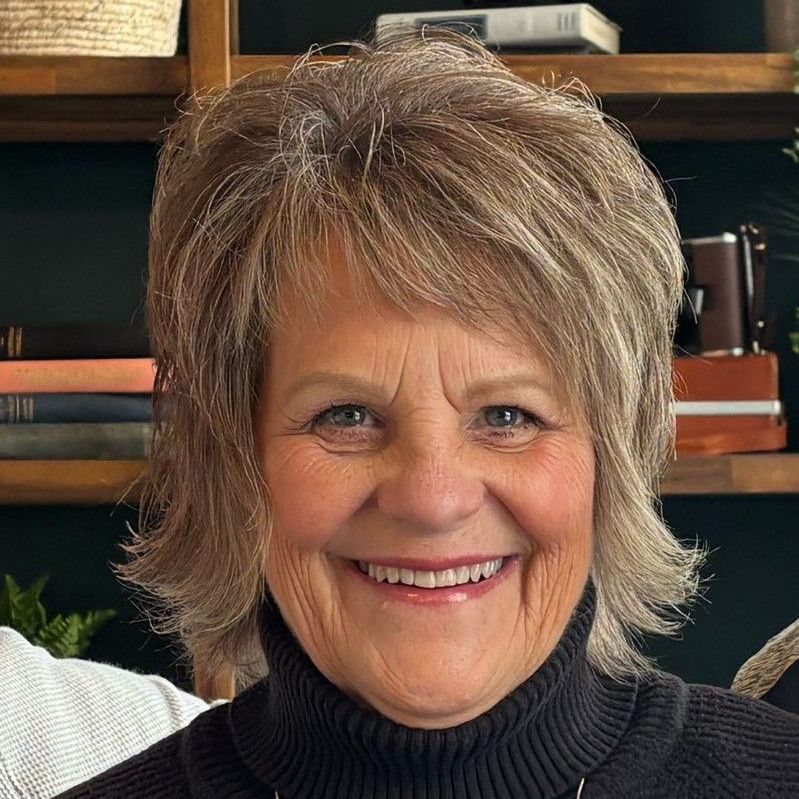Guardianship Services
Request Call Back
Hero Request Form
Guardianship Service: Protecting the Vulnerable
At Catholic Charities North Dakota, we offer a comprehensive guardianship service designed to protect the vulnerable. Our team is committed to ensuring the safety and wellbeing of those who may not be able to make decisions for themselves. We strive to answer the following critical questions:
- Can the person comprehend their situation and communicate decisions effectively?
- Is their health, safety, or quality of life at risk due to their decisions?
- Are they in immediate physical, emotional, or financial danger?
- Are there less restrictive alternatives that can offer the necessary protection and support?
- What potential negative impacts can establishing a guardianship have?
- Can a guardianship offer relief and protection?
For more information, we encourage you to reach out to our team at Catholic Charities North Dakota.
Why Guardianship Service is Essential
Guardianship services play a vital role in protecting individuals who may be at risk. At Catholic Charities North Dakota, we consider the following factors when assessing the need for guardianship:
- Understanding of personal situation and decision-making abilities
- Risk to health, safety, or quality of life due to personal decisions
- Imminent danger, whether physical, emotional, or financial
- Potential for less restrictive protective measures
- Possible negative impacts of establishing a guardianship
- Ability of guardianship to provide relief and protection
Contact Catholic Charities North Dakota today to learn more about our guardianship services.
Why Catholic Charities North Dakota is Your Best Choice
At Catholic Charities North Dakota, we are dedicated to providing the best possible care for individuals served. Here are some reasons why you should consider our services:
- We genuinely care about our clients and work with them regardless of their plans
- We are COA accredited, ensuring the highest standard of service
- We can be available for emergencies, providing immediate support
- We accept donations, allowing us to continue our important work
We encourage you to contact Catholic Charities North Dakota to discuss how we can meet your needs.
Contact Us
At Catholic Charities North Dakota, we are here to help. If you or a loved one may benefit from our guardianship services, please don't hesitate to get in touch. Our dedicated team is ready to provide the support and protection you need.
How do I go about establishing a guardianship?
There is a legal procedure that must be followed in order to establish a guardianship. Once it has been determined that guardianship is the most appropriate solution, the first step is to contact an attorney. Your attorney will help you file a petition for guardianship and a court hearing will be set. Notices of the petition for guardianship and date of the hearing will be given to all interested parties, including the proposed individual. At the hearing, the court decides if the proposed individual needs a guardian, the level of guardianship (limited or general) and who will be the guardian.
What happens before the court hearing?
The attorney representing the person seeking the guardianship (the petitioner) will continue to gather information and evidence that supports the need for establishing guardianship. The court will appoint a guardian ad litem, a visitor, and an expert examiner (physician, psychiatrist, advanced practice registered nurse, physician assistant or psychologist) to evaluate the need for and appropriateness of establishing a guardianship for the proposed individual.
- The guardian ad litem (GAL) is an attorney who represents the proposed individual. The GAL visits with the proposed individual and evaluates all of the available information on the case. The GAL then files a report and recommendations with the court. The guardian ad litem makes recommendations based on what he or she feels is in the best interests of the proposed individual.
- The visitor is usually a social service professional who visits with the proposed individual, his or her current (future, if applicable) residence and the proposed guardian. The visitor may meet with others who are involved in the case and examine information pertinent to the case. The visitor then files a report and recommendations with the court.
- The expert examiner examines or evaluates the proposed individual. His or her recommendations and report are then filed with the court.
What happens at the court hearing?
All interested parties could and should attend the hearing. The proposed individual must attend unless very good and clear reasons for his or her absence are provided to the court. (The court may hold the hearing at an alternative location such as a nursing home or hospital to ensure the proposed individual’s attendance.)
- The attorney representing the petitioner presents evidence to establish that the proposed individual is unable to make or communicate responsible decisions for his or her well-being in all or certain areas of his or her life.
- The court accepts and carefully considers the reports and recommendations filed by the visitor, guardian ad litem, and expert examiner.
- Anyone involved in the case may testify to prove or disprove the need to establish guardianship.
- Once the evidence has been presented and testimony has been given, the court must decide if there is clear and convincing evidence that the proposed individual is incapacitated and there are no other options available to safeguard the proposed individual’s health, safety and habilitation. If so, the court appoints a guardian who will be able to fulfill the assigned duties properly.
Does it cost anything to set up a guardianship?
In order to protect the freedoms and rights of a proposed individual, the procedure to establish a guardianship is detailed, specific and requires the services of a number of professionals. The cost of setting up a guardianship includes attorney’s fees, court costs, and fees for the guardian ad litem, visitor and the expert examiner.
- The cost to establish a guardianship can range from $3,000 to $6,000 or more. In most cases, these costs are paid by the person who is petitioning for the court to establish a guardianship or if the court orders, the proposed individual may be required to pay. In some cases, certain fees can be paid by an outside agency or may even be waived.
How do I know what authority I will have as a guardian?
The court will issue orders and letters that specify the areas where the guardian does and does not have authority and responsibility. After the guardianship orders and letters have been signed and filed with the court, the guardianship becomes official.
As a guardian, will I be financially responsible for the individual?
You may have the authority to oversee and handle the individual’s funds. You must make sure that the individual’s money is spent to cover his or her needs such as rent, clothing, and other bills. Unless you agree to take on more financial responsibility for the individual or are clearly negligent in handling the individual’s funds, you have no personal financial responsibility.
Will the individual have to live with me?
You need to make arrangements for the care of the individual; you are not required to have the individual move into your home. You are responsible for seeing to the well-being and best interest of the individual.
As a guardian, do I have to make reports to the court?
Guardians are required to file an Annual Wellbeing Report, an Annual Financial Accounting and a Confidential Information Form with the court. The report forms are available from the probate office of the district court as well as the North Dakota Supreme Court website. The reports consist of information about the physical and emotional condition of the individual, the services that the individual receives, any problems that have occurred since the last report, what the guardian has done for the individual, a summary of any medical decisions the guardian has made on behalf of the individual and an accounting of the individual’s financials.
Once I am appointed guardian, am I all alone?
As a guardian your primary responsibility is to ensure that the individual is receiving necessary and quality services. There are agencies and organizations that can provide assistance in obtaining these services. Some of these agencies and organizations are: Protection & Advocacy Project, North Dakota Department of Health and Human Services/Vulnerable Adult Protective Services, Legal Services of North Dakota, your district court, North Dakota Department of Health and Human Services/Developmental Disabilities Division, North Dakota Department of Health and Human Services/Aging Services Division, Mental Health Association of North Dakota, area social services, the Guardianship Association of North Dakota and the Guardianship Division of Catholic Charities North Dakota.
Reviews
Related Adoption Services
Our Team of Guardianship for the Vulnerable Social Workers

Shannon H
Director of Guardianship Services: Vulnerable

Neal H
GSV Assistant Director

Crystal A
Guardianship Worker

Valerie S
Guardianship Worker

Deb B
Guardianship Worker

Kathy F
Guardianship Worker

Alicia O
Guardianship Worker

Tammy H
Guardianship Worker

Abby W
Guardianship Lead Support Staff

Kristin R
PPAS and GSV Support Staff
Learn More About
Catholic Charities North Dakota
Located in Fargo, Bismark, Grand Forks, and Minot, ND. Catholic Charities North Dakota specializes in adoption services and guardianship facilitiation. Serving North Dakota since 1923. Available for emergencies. COA accredited. Call today.

Share On: